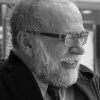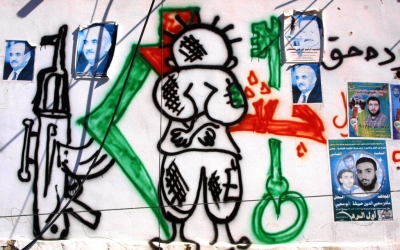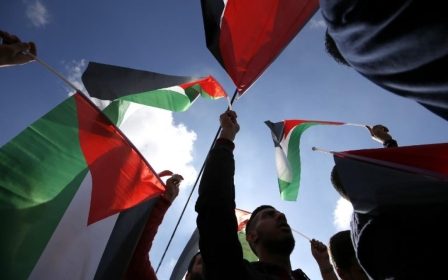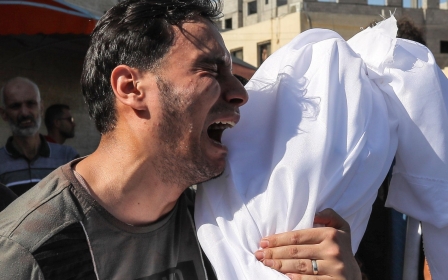War on Gaza pits Palestinian liberation theology against Evangelical Zionism
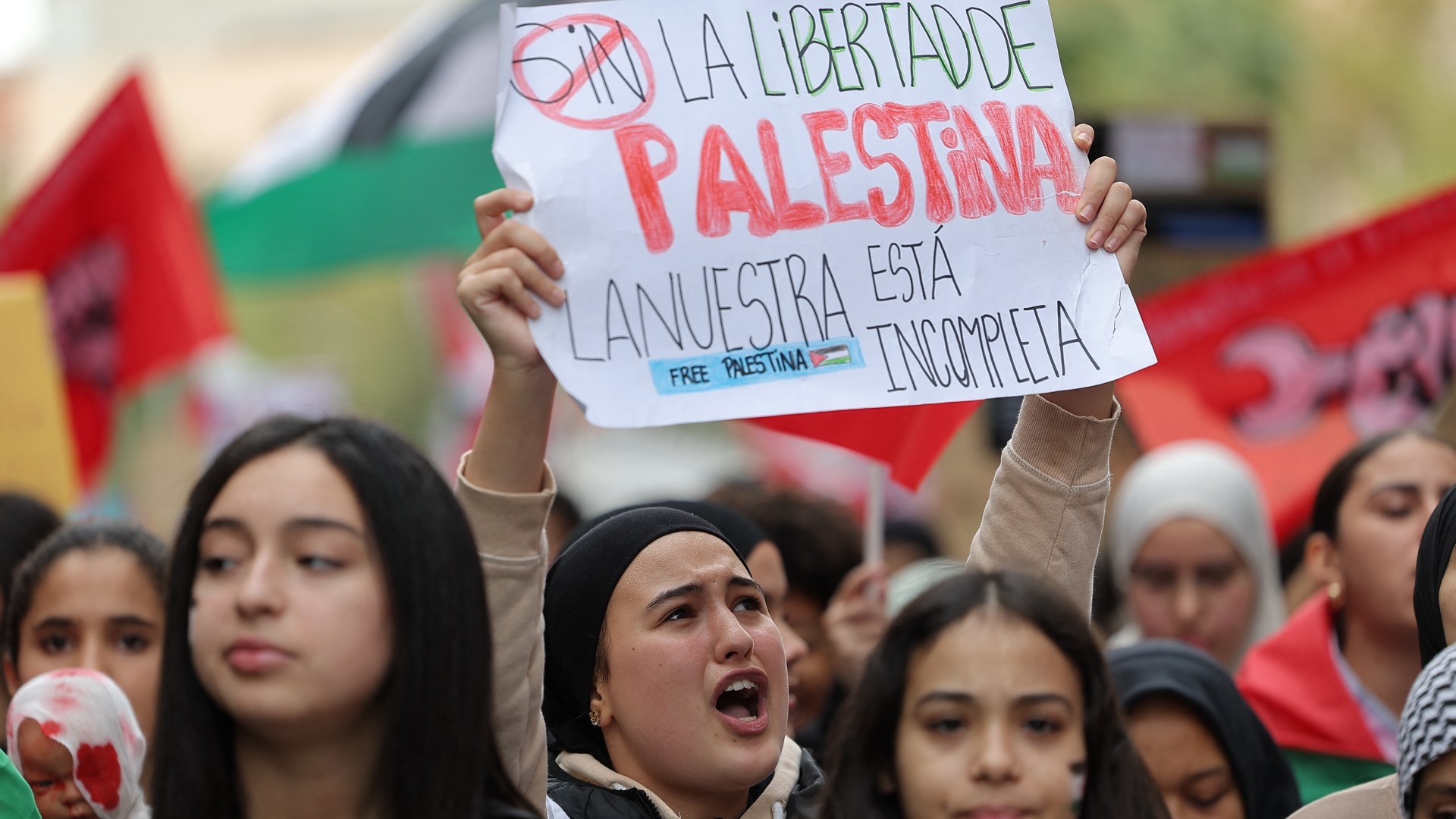
The monumental atrocities that Israel is committing in Palestine on behalf of “western civilisation” are no longer measurable only in their savagery and calamitous consequences. There are equally important moral, philosophical and theological issues at stake.
What kind of philosophy, theology or moral imagination would we need in order to come to terms with the sheer barbarity of Israel as a settler-colonial project? Palestine, and Gaza in particular, is today at the epicentre of this question. Europe and Eurocentricity have long since lost any shred of credibility.
We must take the president of the Israeli settler colony at face value when he says: “This war is a war that is not only between Israel and Hamas. It’s a war that is intended, really, truly, to save western civilisation, to save the values of western civilisation.”
He is absolutely right: slaughtering more than 27,000 Palestinians, many of them children, in nearly four months of round-the-clock bombing - a campaign now broadly recognised as a genocide - is indeed a sign of “western civilisation” at its most barbaric.
The whole world is now up against the savageries of "western civilisation", though not just in political terms. We must expose the rotten roots of the immorality and cruelty embedded in the very DNA of its theologies and philosophies.
New MEE newsletter: Jerusalem Dispatch
Sign up to get the latest insights and analysis on Israel-Palestine, alongside Turkey Unpacked and other MEE newsletters
“We are angry. We are broken. This should have been a time of joy; instead, we are mourning. We are fearful.” With these powerful words, Reverend Munther Isaac began his sermon the day before Christmas Eve 2023 as Israeli forces continued to bomb Gaza.
Among the tens of thousands of Palestinians slaughtered were Christians, Muslims, men, women and children - all killed by an Israeli army equipped and armed by the US, UK and their western partners.
Metaphysical power
Today, as ever, it is impossible to distinguish between a Muslim and a Christian Palestinian when it comes to their struggles and sacrifices for the liberation of their homeland. As I wrote back in June 2022, when Palestinian journalist Shireen Abu Akleh was murdered point-blank by the US-backed Zionist occupying forces in Palestine, the moving iconography of her martyrdom marked her as a Palestinian.
The term “Palestinian” itself has by now assumed its own metaphysical power, irreducible to Christian or Islamic denominators.
Follow Middle East Eye's live coverage of the Israel-Palestine war
Issac’s sermon is a key passage in what we might today consider a “Palestinian liberation theology”, which stands in stark contrast to the Evangelical Zionism that has laid a settler-colonial claim on Christianity as it aids and abets the Zionist conquest of Palestine.
While this Palestinian liberation theology is a potent, rooted and nonsectarian theology of resistance and liberation, opposing it is a militant ideology of conquest and colonisation, in the shape of a Judeo-Christian Zionism that is now on full global display, with all its wanton barbarity.
Palestinian liberation theology ... is at once Christian and Islamic, while neither entirely Christian nor entirely Islamic
After a century of struggle for the liberation of their homeland, Palestinian Muslims and Christians alike - and even those who consider themselves secular - have come together in a tertiary liberation space that transcends their sectarian affiliations.
In the US context, sociologist Robert Bellah proposed the idea of an “American civil religion”, and before him, French sociologist Emile Durkheim thought of religion as what he called “collective consciousness”. Today, Bellah’s idea of civil religion remains a potent sociological proposition - but it has effectively lost to the vicious Evangelical Zionism that supports both the most reactionary faction of the Republican Party and the Israeli settler colony.
If we were to put the ideas of Bellah and Durkheim together and recast them onto the Palestinian context, we would see the collective consciousness of Palestinians, who aim to liberate their homeland from a savage European conquest undergirded by a patently Judeo-Christian Zionist ideology. Palestinians must therefore come together to form a unique liberation theology that transcends both Christianity and Islam.
Theological roots
The roots of Evangelical Zionism can be traced back to the time of Bartolome de las Casas (1484-1566), when settler-colonial Christianity was put squarely at the service of the European conquest of “the New World”. Palestinian liberation theology, on the other hand, is rooted in Latin American liberation theology, as best articulated by Dominican priest Gustavo Gutierrez, among others.
In my most recent work, I speak extensively of a post-Islamist liberation theology that is equally evident in the ecumenical project of Palestinian liberation theology, which brings Muslim and Christian Palestinians together.
Hamas and its brand of Islamism are integral to the Palestinian cause, but not definitive to it, whereas Evangelical and Jewish Zionism are definitive to the Israeli settler colony. In a future Palestinian national framework, Hamas or any other Islamist outfit will have to contend not just with other non-Islamist factions, but more importantly, with a deeply cultivated and nonsectarian citizenry.
As such, Hamas is subject to a post-Islamist liberation theology that takes the suffering of Palestinians as its point of departure, while in the form of Palestinian national liberation, Islam and Christianity have already come together against the ideology of conquest in the form of Jewish and Evangelical Zionism.
This is not religious warfare, nor a battle of theologies or ideologies. This is a battle between a fanatical religious zealotry seeking to rule the world, and a liberation revolt that has built a potent vision of a post-Zionist future.
Palestinian liberation theology is syncretic, nonsectarian and non-denominational. It is at once Christian and Islamic, while neither entirely Christian nor entirely Islamic.
Whether or not responsible and conscientious Jews, having grown sick and tired of Zionism, will ever launch a radical dismantling of Zionism to save their ancestral faith in a Jewish liberation theology, remains to be seen. There are plenty of post-Zionist and even anti-Zionist sentiments and thoughts, but no credible critical mass to dismantle Zionism from within, as the Israeli settler colony continues to commit barbaric savagery on a daily basis.
“Here in Palestine,” Issac said in his sermon, “the Bible is weaponised against us, our very own sacred text. In our terminology in Palestine, we speak of the Empire. Here we confront the theology of the Empire - a disguise for superiority, supremacy, ‘chosenness’ and entitlement.”
This, in plain truth, pits Palestinian liberation theology against Evangelical and Jewish Zionism. History is on the side of the brutalised - and yes, this time, “blessed are the meek, for they shall inherit the earth” (Matthew 5:5).
The views expressed in this article belong to the author and do not necessarily reflect the editorial policy of Middle East Eye.
Middle East Eye delivers independent and unrivalled coverage and analysis of the Middle East, North Africa and beyond. To learn more about republishing this content and the associated fees, please fill out this form. More about MEE can be found here.


